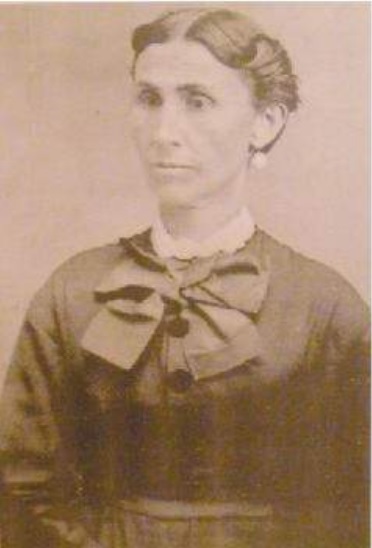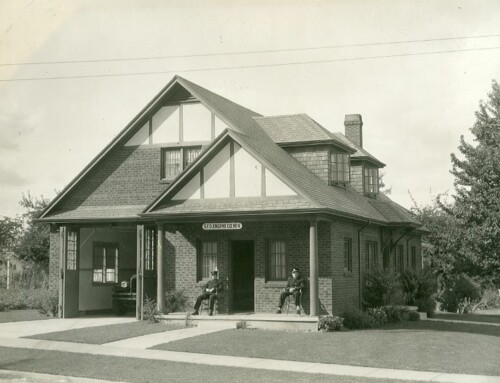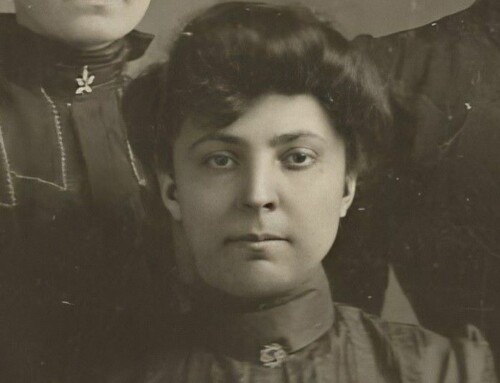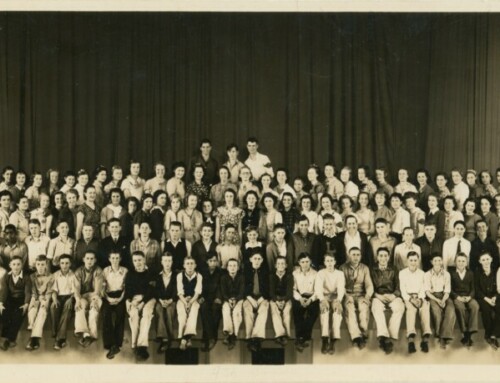
Mary Ramp (1829-1916) was active in the early suffrage movement and an ardent prohibitionist. Image courtesy of the Brooks Historical Society.
Polk County writer Evelyn Sibley Lampman was a remarkable woman. She graduated in 1929 from Oregon Agricultural College (today’s Oregon State University) and moved to Portland, where she became a respected and award-winning copywriter for KEX radio. In 1934, she married Herbert Sheldon Lampman, who was a Fish & Wildlife editor for the Oregonian. His father, Ben Hur Lampman, ran the Oregonian’s editorial page and was Oregon’s first Poet Laureate. After marrying, Evelyn left her job and was banned from driving, as her husband thought it was unseemly for a woman to operate an automobile.
Widowed at 35, with two young daughters to support, Lampman returned to writing for radio. In 1947, Doubleday published her debut novel, Crazy Creek, a story about pioneer life in Oregon for older children. Two years later, Doubleday accepted her second book, Treasure Mountain, and she quit her day job. For the next 30 years, Lampman persisted as a single mother and she never remarried. She wrote 40 historical and science fiction novels for young adults.
She was fascinated by the history of the Northwest and particularly its Native Peoples, and her most acclaimed work concerned Native Americans, to whom she was sympathetic; for example, Once Upon A Little Big Horn tells the story of Custer’s Last Stand from Sitting Bull’s perspective. Lampman made a living writing and she wrote often, using a pseudonym so that she could publish more than once a year. She died in 1980 of cancer of the bile duct.
Mary Anne Hammer Ramp was born in 1829 in Kentucky. She married Samuel Ramp in 1849, and in 1853, they and their two small children left for the West along the Oregon Trail. They had another child during the journey. Initially settling in the Silverton Hills, the family saved and eventually purchased a farm on French Prairie just north of Brooks. By the time Samuel Ramp died in 1898, the family owned 11 farms in the Willamette Valley, which Mary continued to manage after Samuel’s death.
Even though she raised seven children, Mary Ramp took up the suffrage cause while also championing temperance. She gave Salem a home for the W.C.T.U (Women’s Christian Temperance Union), known as “Ramp Hall for the Promotion of Equal Suffrage and Temperance. Temperance was later changed to “National Prohibition.”
Mary Ramp was active in the early suffrage movement and she was an ardent prohibitionist. After her husband’s death, she moved to Salem, where she lived until she passed away in 1916 at the age of 86. She was survived by three children, 21 grandchildren and 28 great grandchildren.
Cassie Stump was born in 1855 in Monmouth, Oregon, to one of the town’s pioneering families. Her father, David Stump, was one of the original donors to Monmouth University. In 1875, Stump earned her M.S. degree from Monmouth Christian College and in 1876 she got her teaching certificate from Polk County. She left Oregon to attend Wellesley College (Massachusetts) in 1881. It is unclear if she completed her Wellesley degree, but it known from the journal she kept at the time that she visited the home of poet Henry Wadsworth Longfellow. She returned to Oregon in the early 1880s and took a position teaching instrumental music at the Monmouth Christian College.
Stump was the founder and first president of the Vespertine Society, a campus literary society formed in response to the trustees of the Christian College barring women from the Philosophian Literary Society. Throughout the late 1800s, male and female campus literary societies played an important part in campus social life. College literary societies were a social organization, and were the precursors of fraternities and sororities. Societies held regular public activities for students and community members that consisted of formal debates on issues of the day, as well as original essays, poetry readings and music recitals. She was also an advocate for equal rights for women and was one of the first Monmouth women to register to vote after suffrage passed in Oregon in 1912.
With the exception of the short time she was back East, Stump lived in Monmouth with her parents in the family home built by her father. When David Stump passed away, Cassie left teaching for a time to care for her mother. The family home was located on the corner of Jackson Street and N. Monmouth Avenue, where the Academic Programs and Support Center now stands. After her mother died in 1916, Stump added an additional floor and porches onto the house and opened a boarding house for female instructors at the College. Eventually, the home became a hub for college activities. Cassie Stump remained single until her death in 1941 at the age of 86.
Written by Keni Sturgeon for the Statesman Journal newspaper where it appeared 19 February 2012.







Leave A Comment